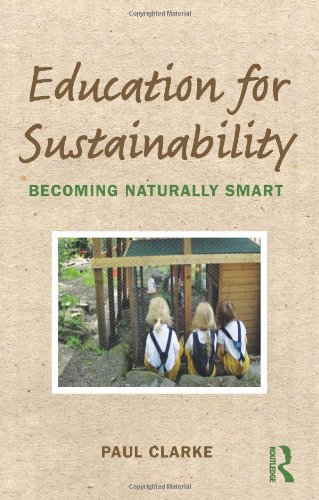Cuba’s Academic Advantage: Why Students in Cuba Do Better in School





In this book, Paul Clarke argues that in order to live sustainably we need to learn how to live and flourish in our environment in a manner that uses finite resources with ecologically informed discretion. Education is perfectly placed to create the conditions for innovative and imaginative solutions and to provide the formulas that ensure that everyone becomes naturally smart; but to achieve this, we need to recognise that an education that is not grounded in a full understanding of our relationship with the natural world is no education at all. In other words, a total transformation of schools and schooling is needed.
While acknowledging that the ecological crisis is global in scale, Paul Clarke maintains that many of the solutions are already evident in our local communities. Drawing on innovative sustainable living programmes from around the world, including Sweden’s Forest Schools, China’s Green Schools programme, the US Green Ribbon Schools programme and his own school-of-sustainability project, Paul Clarke offers practical solutions about how schools and communities can make their contribution.
This book examines how we might proceed to empower and actively develop schools and communities to connect hand, heart and mind for an eco-literate future. It is thought provoking, timely and challenging, and should be read by school leaders, community and business leaders, as well as anyone grappling with the problems of transition from an industrial past to an ecologically sustainable future.
| Country | USA |
| Author | Paul Clarke |
| Binding | Paperback |
| EAN | 9780415698726 |
| Edition | 1 |
| ISBN | 0521589711 |
| Label | Routledge |
| Manufacturer | Routledge |
| NumberOfItems | 1 |
| NumberOfPages | 160 |
| PublicationDate | 2012-02-11 |
| Publisher | Routledge |
| Studio | Routledge |
| ReleaseDate | 0000-00-00 |